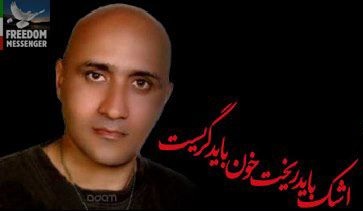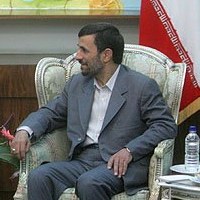![]()
This article was first published in the Spotlight on Iran, Week of November 6‐13, 2012 (terrorism-info.org.il), a weekly publication of the Meir Amit Intelligence and Terrorism Information Center. © Israeli Intelligence & Heritage Commemoration Center, 2012.
The death of an Iranian blogger during his prison sentence sparked a public controversy this week and was even brought up at a Majles session. Sattar Beheshti, 35, was arrested on October 30 at his residence in Robat Karim, Tehran Province, for publishing anti-regime materials on his personal blog and the Facebook social network.
He was accused of compromising state security and handed over to the cyber police for interrogation. On October 31 Beheshti was moved to Ward 350 at Tehran’s Evin prison, where political prisoners are incarcerated. He spent about 24 hours in the ward and was subsequently brought back for more questioning at the cyber police headquarters. On November 6 his family was informed of his death and asked to pick up his body at the Kahrizak detention facility in Tehran. The authorities, which provided the family members with no explanations on the circumstances surrounding his death, warned them not to talk to the media about the incident and even confiscated their cellular telephones and imposed severe restrictions on their movement. Last Thursday, November 8, Beheshti was buried in Tehran. The ceremony was closely supervised by the internal security forces, who even imposed restrictions on the number of participants.
This weekend the reformist website Kalemeh presented testimonies from Ward 350 according to which Beheshti had been severely tortured during his questioning at the cyber police headquarters. Forty-one political prisoners held in the ward released a memorandum of opinion where they testified about his physical and mental condition after being moved to the ward. According to the testimonies, when Beheshti arrived in the ward on October 31, he told his fellow prisoners that he had been severely beaten while in the custody of the cyber police, and that the interrogators had even threatened to kill him. The prisoners said that there were signs of brutal violence on all parts of his body, and that he was in a bad physical and mental condition. Despite being in a poor state, Beheshti managed to write a brief complaint to the Evin prison authorities describing his condition and the way he had been tortured by the cyber police interrogators.
Beheshti was taken to the prison infirmary on two occasions, the political prisoners said. On November 1 Beheshti was once again moved from Ward 350 to the cyber police headquarters. Before being moved, he expressed his concern that the interrogators intended to kill him (Kalemeh, November 10).
Beheshti’s death drew strong reactions from the reformist media and human rights organizations in Iran and the West. Iranian social network users accused the Iranian authorities of responsibility for his death, protested the authorities’ silence over the incident, and called for Beheshti’s death to be used for raising public awareness of the problem of political prisoners detained in Iran.
Baztab, a website affiliated with Mohsen Reza’i, chairman of the Expediency Discernment Council and former chief of the Revolutionary Guards, argued that Beheshti’s death is reminiscent of the incident at the Kahrizak detention facility, and demanded that the authorities take strong measures against those responsible for his death to make sure such cases do not happen again (Baztab, November 7). The Kahrizak affair first made headlines in July 2009, when the south Tehran detention facility was closed down on orders from Supreme Leader Ali Khamenei in the wake of reports that at least three detainees had died there after being abused by wardens and other inmates. One of the detainees who died in the detention facility was Abdol Hossein Ruhollamini, the son of one of Mohsen Reza’i’s top advisors.
In the wake of the strong reactions provoked by Beheshti’s death, the affair became a subject of discussion in the Majles. Majles member Ahmad Tavakoli strongly criticized the silence of the authorities over the blogger’s death, saying that it is necessary to shed light on the circumstances surrounding his death. He noted that governments and media in the West are taking advantage of the affair to attack Iran, and that the judiciary and the Ministry of Foreign Affairs need to provide explanations on it. He called on the judiciary to take strong action against those responsible for the blogger’s death and suggested that the authorities should deal with top officials involved in corruption instead of going after bloggers (Alef, November 11). Mohammad-Hassan Abu-Torabi, deputy speaker of the Majles, also commented on the affair, and announced that the Majles National Security and Foreign Policy Committee established a special committee to look into the circumstances of Beheshti’s death (ISNA, November 11).
A reaction issued by the judiciary’s Human Rights Headquarters following Beheshti’s death said that Ayatollah Sadeq Larijani, chief of the judiciary, ordered an investigation into the affair and said that its results should be published as soon as possible. The announcement of the judiciary said that the Islamic republic respects the rights of all citizens, including suspects and detainees, and that the judiciary intends to take action against all those who are found to be involved in the affair (Asr-e Iran, November 11). On Monday, November 12, the Iranian media reported that three of Beheshti’s interrogators had been detained.
You can read Sattar Behesthi’s last blog post here.



 RSS
RSS












Latest Comments
Hello Mike, Thank you for your positive feedback to the article. I felt there wasn’t too much critical analysis of ...
Thanks for this considered and well constructed article. A follow up article on the manner in which the editorial contro...
THE CLUELESSNESS OF CLAIMING THAT OBAMA'S MIDDLE EAST POLICIES WERE A FAILURE CANNOT BE FURTHER FROM THE TRUTH, WHAT THE...
As long as Obama is the president of the usa do not trust the us government......
Thank you for an good read....